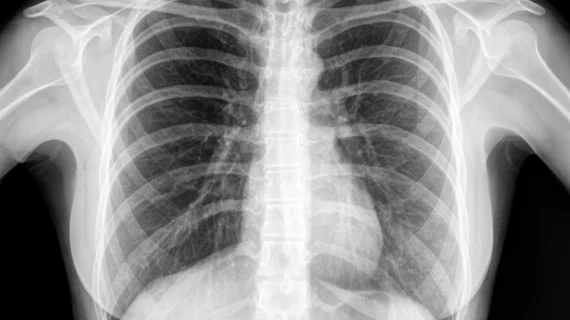Artificial intelligence reads chest X-rays to predict severe COVID-19 case progression with 80% accuracy
A new artificial intelligence tool developed by NYU Langone Health is able to read chest X-rays and predict severe COVID-19 cases with up to 80% accuracy, experts reported Wednesday.
Grossman School of Medicine researchers built the model using more than 5,200 radiographs gathered from nearly 3,000 seriously ill patients with the novel coronavirus. Radiologists and emergency physicians face a “pressing need” to determine early on whether patients’ cases will snowball and require additional care, authors wrote May 12 in NPJ Digital Medicine.
“We believe that our COVID-19 classification test represents the largest application of artificial intelligence in radiology to address some of the most urgent needs of patients and caregivers during the pandemic,” Yiqiu Shen, a doctoral student at NYU’s Center for Data Science, said in a statement.
Along with radiological images, the AI model also uses everything from patient age and race, to gender, vital signs, and lab test results to make its determinations. Patients’ need for a mechanical ventilator, along with whether they survived or died from their COVID case, were also key factors in training the model.
Testing the AI program on chest X-rays from more than 700 patients admitted to NYU Langone last year, Shen and colleagues logged promising results. The program correctly predicted 4 out of every 5 infected patients who would require intensive care, mechanical ventilation or ended up dying within four days of admission.
The team hopes to incorporate additional clinical data to further strengthen the model and test its AI program in real-time use with radiologists and emergency docs. They’re currently working to draft clinical guidelines first.
You can read more about the National Institutes of Health-funded study in Nature Partner Journals’ Digital Medicine publication here.

